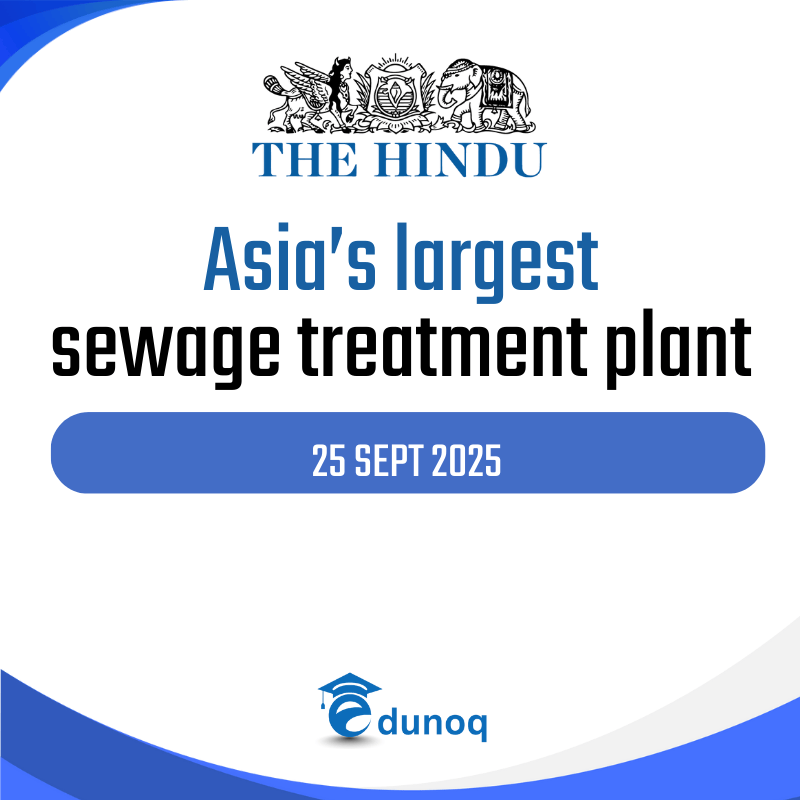The Katchatheevu and Palk Strait disputes highlight the complex relationship between India and Sri Lanka. While the 1974 Agreement legally settled the island’s ownership in Sri Lanka’s favour, the real issue lies in fishing rights for Tamil Nadu fishermen. Sri Lanka banned bottom trawling in 2017 due to ecological damage, but Indian mechanised trawlers continue, harming marine biodiversity and causing conflict with Sri Lankan artisanal fishers. International laws such as the UNCLOS and FAO Code of Conduct emphasise conservation and sustainable practices, making India’s current approach unsustainable.
The solution lies in cooperative frameworks—seasonal fishing rights, joint research stations, marine conservation programmes, and livelihood diversification. Community-level trust building and historical bonds between Tamil Nadu and Northern Sri Lanka can help transform disputes into cooperation. India and Sri Lanka should adopt a neighbourhood-first, humane diplomacy approach, balancing ecological needs with fishermen’s livelihoods. This will prevent Katchatheevu from becoming a symbol of political hostility and instead turn it into a model for regional maritime cooperation, environmental sustainability, and people-to-people trust.
📌 Key Bullet Points for UPSC
-
Background:
-
1974 India–Sri Lanka Maritime Agreement gave Katchatheevu to Sri Lanka.
-
Dispute is less about territory, more about fishing rights in Palk Strait.
-
-
Issues:
-
Indian mechanised trawlers cause ecological damage.
-
Conflict with Sri Lankan artisanal fishers.
-
Tamil Nadu political parties demand retrieval of Katchatheevu.
-
-
International Law:
-
UNCLOS – equitable use of marine resources.
-
FAO Code (1995) – bans destructive practices like bottom trawling.
-
No “innocent passage” rights for trawlers.
-
-
Ecological Concerns:
-
Coral reef destruction, shrimp depletion.
-
Marine biodiversity loss.
-
Overfishing reduces livelihoods.
-
-
Possible Solutions:
-
Cooperative fishing regime with seasonal access.
-
Joint marine research and monitoring.
-
Promotion of deep-sea fishing in India.
-
Financial and livelihood support to Indian fishers.
-
-
Strategic Importance:
-
Tests India’s Neighbourhood First Policy.
-
Impacts Tamil Nadu politics and Centre–State relations.
-
Maritime security in Indian Ocean region.
-
-
UPSC Relevance:
-
GS Paper II: International Relations, Federal Issues.
-
GS Paper III: Environment, Conservation, Blue Economy.
-
Essay Paper: India’s neighbourhood diplomacy.
-
The Way Forward on Katchatheevu and Palk Strait Disputes
Introduction
India and Sri Lanka, two close neighbours bound by geography, culture, and history, have shared both cooperation and conflict in the Indian Ocean region. Among their most debated bilateral issues is the Katchatheevu Island and Palk Strait dispute. While the island was formally ceded to Sri Lanka in 1974 through a bilateral agreement, disputes over fishing rights in the Palk Strait continue to affect fishermen in Tamil Nadu and Northern Sri Lanka. This issue intertwines international law, ecology, diplomacy, livelihoods, and domestic politics.
For UPSC aspirants, this topic is a classic example of how foreign policy, federal politics, environmental sustainability, and people-to-people ties intersect.
Historical Background of the Dispute
-
Katchatheevu Island is a small, uninhabited island located in the Palk Strait between Tamil Nadu and Sri Lanka.
-
The 1974 India–Sri Lanka Maritime Agreement recognized Sri Lanka’s sovereignty over Katchatheevu, mainly to settle maritime boundaries.
-
However, traditional fishing rights of Tamil Nadu fishermen were ambiguously defined. While pilgrimage access to the St. Anthony’s Church was allowed, fishing rights were not clearly protected.
-
Since then, Tamil Nadu’s fishermen have often crossed into Sri Lankan waters, leading to arrests, boat seizures, and even violent clashes.
Livelihood vs. Conservation: The Core Issue
-
Tamil Nadu fishermen increasingly use mechanised bottom trawlers to maximize catch.
-
This practice damages marine ecology: coral reefs, shrimp stocks, and fish breeding grounds.
-
On the other hand, Sri Lankan Northern Province fishermen, many of them small-scale artisanal fishers, rely on traditional methods that are ecologically sustainable.
-
Result: livelihoods are in direct conflict, and the environment suffers.
International Law Dimensions
-
UNCLOS (United Nations Convention on the Law of the Sea): stresses equitable use and environmental protection of marine resources.
-
FAO Code of Conduct for Responsible Fisheries (1995): prohibits destructive methods such as bottom trawling.
-
No Innocent Passage: International law does not allow trawlers to claim passage through another country’s waters for fishing purposes.
-
Hence, legally, Sri Lanka’s restrictions stand on firm ground.
Ecological and Environmental Concerns
-
Destructive Practices: Bottom trawling scrapes the seabed, destroying coral and marine ecosystems.
-
Overfishing: Depletes stocks, leaving artisanal fishermen without resources.
-
Loss of Biodiversity: Affects long-term sustainability of the Indian Ocean.
-
Climate Vulnerability: Coastal communities are already vulnerable to rising sea levels and cyclones; resource depletion adds stress.
Political Angle in India
-
Tamil Nadu political parties often demand the retrieval of Katchatheevu, portraying the 1974 Agreement as a “historical betrayal.”
-
The issue becomes a rallying cry during elections.
-
However, from the Union Government’s perspective, reopening the agreement could damage relations with Sri Lanka and set a negative precedent in international law.
-
This reflects Centre–State tensions in India’s federal structure.
Humanitarian and Cultural Dimensions
-
Many Sri Lankan Tamil refugees live in Tamil Nadu, creating a strong emotional bond.
-
Fishermen on both sides share cultural ties, dialects, and even family connections.
-
During the Sri Lankan Civil War, Tamil Nadu supported humanitarian relief for Northern Province Tamils.
-
Hence, the issue is not merely economic but also people-to-people diplomacy.
Possible Solutions
-
Seasonal & Limited Fishing Rights: Allow Tamil Nadu fishermen regulated access during certain months or zones.
-
Joint Marine Research Stations: Monitor fish stocks and promote scientific fishing practices.
-
Deep-Sea Fishing Transition: Encourage Indian fishermen to move away from nearshore trawling towards deep-sea fishing with subsidies and training.
-
Livelihood Diversification: Provide financial aid, skill development, and alternative employment to reduce dependency on trawling.
-
Community-Level Trust Building: Use local media and NGOs to reduce hostility and highlight shared struggles.
-
Regional Cooperation Models: Follow examples like the Baltic Sea Fisheries Convention or EU shared fishing agreements.
Strategic Importance for India
-
Neighbourhood First Policy: India must balance Tamil Nadu’s concerns with Sri Lanka’s sovereignty.
-
Indian Ocean Security: Palk Strait is strategically vital for naval movement and maritime trade.
-
China Factor: With China’s growing influence in Sri Lanka (e.g., Hambantota Port), India must ensure goodwill through sensitive handling of disputes.
Way Forward
-
Balance Livelihood and Ecology: Any agreement must protect fishermen while ensuring environmental sustainability.
-
Federal Consultation: Union Government must involve Tamil Nadu in decision-making to avoid political backlash.
-
Diplomatic Patience: Rather than confrontation, India must promote cooperative frameworks.
-
Transforming Dispute into Opportunity: Katchatheevu can become a model for regional cooperation in fisheries, marine conservation, and cultural exchange.













